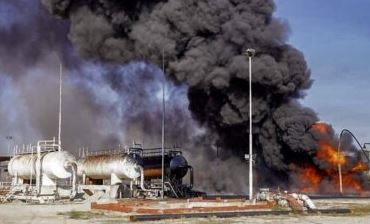Turkish Air Strikes in Northern Iraq and Syria: Escalation of Regional Tensions

The geopolitical landscape of the Middle East continues to evolve as Turkey extends its air strikes into northern Iraq and Syria, marking a significant escalation in regional tensions. This development is not only a testament to the complexities of Middle Eastern politics but also an indication of the potential for wider regional conflict.
Background of the Conflict:
Turkey’s military operations in these regions are part of its broader strategy to combat Kurdish fighters, whom it regards as terrorists linked to the PKK (Kurdistan Workers’ Party). This latest surge in violence, however, is intricately linked to the ongoing war in Gaza, highlighting the interconnected nature of Middle Eastern conflicts.
Impact on Iraq and Syria:
The air strikes have had a profound impact on the already fragile political and social fabric of Iraq and Syria. These countries, grappling with their own internal conflicts and the aftermath of years of war, now face additional challenges due to these external military actions.
International Response:
The international community’s response to Turkey’s military actions has been mixed. While some nations understand Turkey’s security concerns, others are alarmed by the potential for these strikes to further destabilize an already volatile region. Humanitarian organizations are particularly concerned about the impact on civilian populations.
Human Cost:
The human cost of these air strikes is significant. Civilians, often caught in the crossfire, face displacement, injury, and death. The destruction of infrastructure exacerbates the humanitarian crisis, limiting access to essential services and aid.
Turkey’s Stance:
Turkey defends its actions as necessary for national security, arguing that its operations target terrorist groups and are conducted within the framework of international law. However, this stance is often contested by those who see these actions as aggressive and disproportionate.
Looking Ahead:
The situation in northern Iraq and Syria is a vivid reminder of the complexities of Middle Eastern politics. As Turkey continues its military campaign, the region braces for potential repercussions, including increased displacement, humanitarian crises, and the risk of a broader regional conflict.
Regional Stability:
The stability of the Middle East hangs in a delicate balance. The actions of regional powers like Turkey have far-reaching implications, not only for immediate neighbors but for the entire region. The need for a diplomatic solution that addresses the underlying issues and mitigates further escalation is more pressing than ever.




